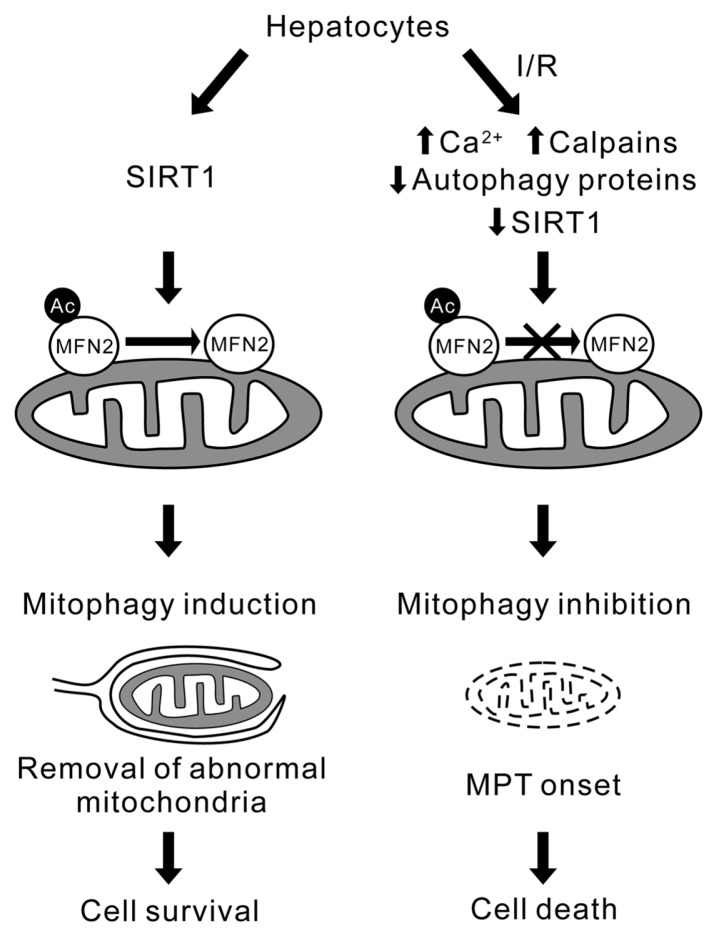Fig. 2.
Proposed mechanism of sirtuin 1-mediated cytoprotection against ischemia/reperfusion injury in the liver. In normal hepatocytes, cytosolic sirtuin 1 (SIRT1) deacetylates mitofusin 2 (MFN2), a mitochondrial outer membrane protein, which, in turn, induces mitophagy and maintains a stable number of heathy mitochondria and cell viability thereafter. In sharp contrast, ischemia/reperfusion (I/R) to hepatocytes causes Ca2+ overloading and calpain activation that subsequently hydrolyzes both key autophagy proteins and SIRT1. As a consequence, MFN2 remains acetylated (Ac-MFN2) and the onset of mitophagy fails. Hepatocytes further accumulate intramitochondrial Ca2+ and reactive oxygen species, resulting in the mitochondrial permeability transition (MPT) and cell death.

